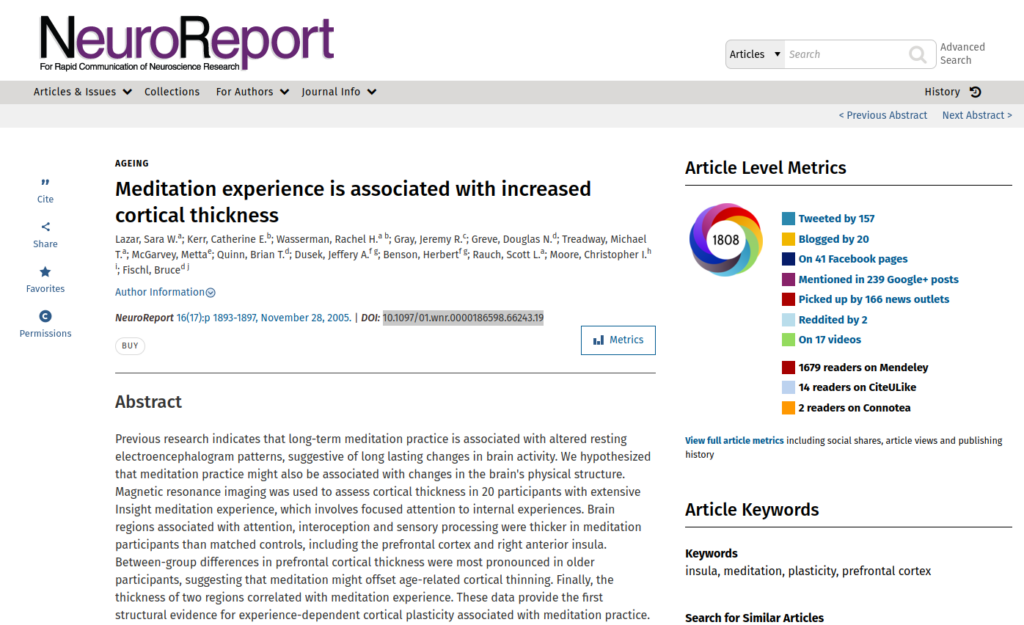Previous research indicates that long-term meditation practice is associated with altered resting electroencephalogram patterns, suggestive of long lasting changes in brain activity. We hypothesized that meditation practice might also be associated with changes in the brain’s physical structure. Magnetic resonance imaging was used to assess cortical thickness in 20 participants with extensive Insight meditation experience, which involves focused attention to internal experiences. Brain regions associated with attention, interoception and sensory processing were thicker in meditation participants than matched controls, including the prefrontal cortex and right anterior insula. Between-group differences in prefrontal cortical thickness were most pronounced in older participants, suggesting that meditation might offset age-related cortical thinning. Finally, the thickness of two regions correlated with meditation experience. These data provide the first structural evidence for experience-dependent cortical plasticity associated with meditation practice.
Meditation experience is associated with increased cortical thickness
Publication
NeuroReport
16(17):p1893-1897, November 28, 2005
Abstract
Web and Email Links
Related Listings
Journal
Behavioral Medicine
The authors assessed data from 1,148 outpatients in a 10-week medical symptom reduction program to determine the effectiveness of a behavioral medicine intervention among somatizing patients. The program included instruction in the relaxation response, cognitive restructuring, nutrition, and exercise. Before and after the intervention, the patients were evaluated on the Symptom Checklist-90 Revised (SCL-90R), the Medical Symptom Checklist, and the Stress Perception Scale. They were di […]
Journal
Journal of the American Heart Association
·
Provides 37 pages of summaries from decades of research concerning how meditation affects heart related functioning (blood pressure, heart rate, etc.) Abstract Despite numerous advances in the prevention and treatment of atherosclerosis, cardiovascular disease remains a leading cause of morbidity and mortality. Novel and inexpensive interventions that can contribute to the primary and secondary prevention of cardiovascular disease are of interest. Numerous studies have reported on the […]
Journal
American Heart Journal
Background: The effect of intercessory prayer (IP) on outcome in cardiac cases has been evaluated previously, but results are controversial. The goals of the Study of the Therapeutic Effects of Intercessory Prayer (STEP) are to evaluate the effects of receipt of additional study IP and awareness of receipt of additional study IP on outcomes in patients undergoing coronary artery bypass graft surgery. STEP is not designed to determine whether God exists or whether God does or does not […]

